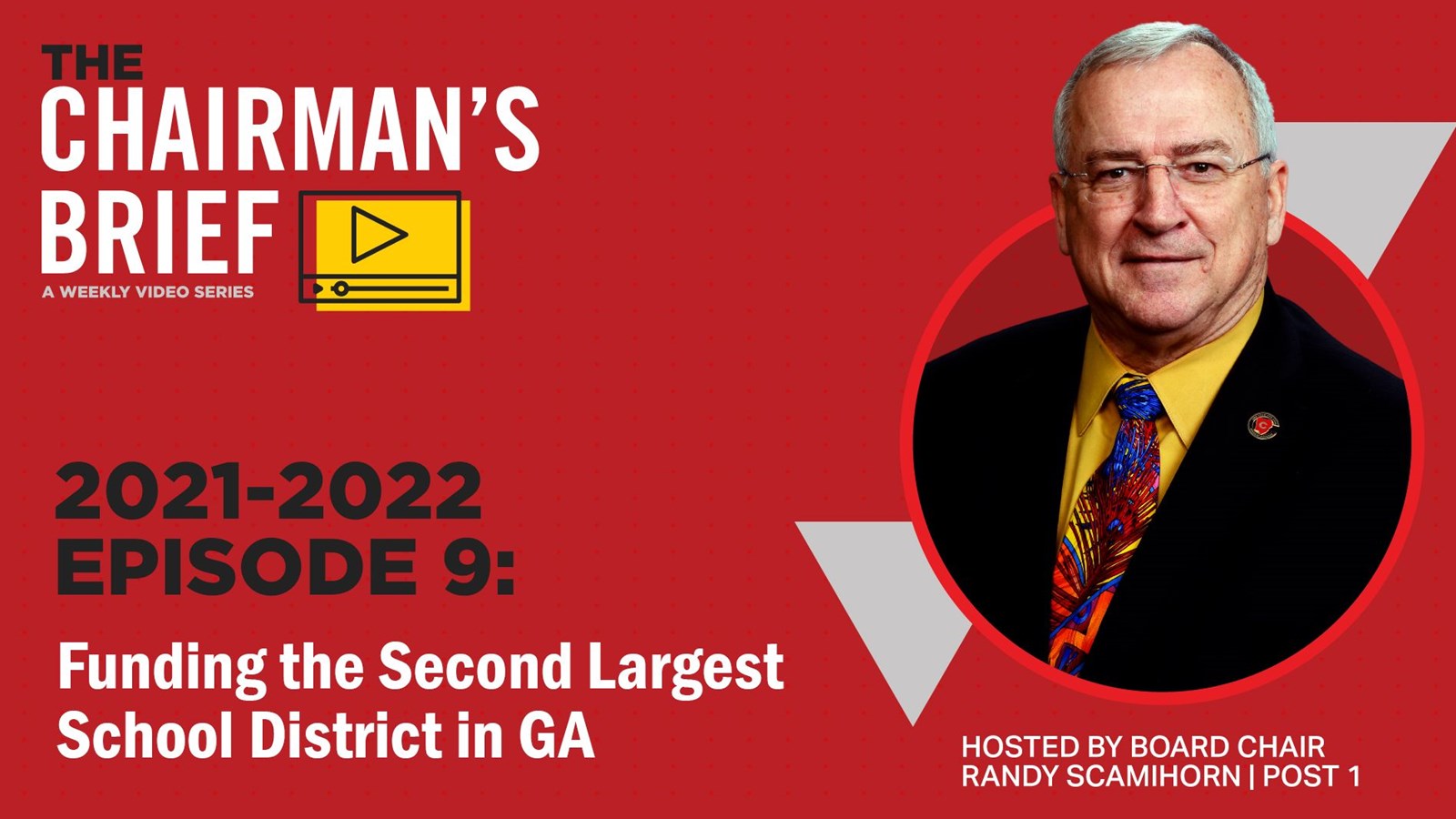The Chairman's Brief: Ed-SPLOST Funding the Second Largest School District in GA

This week on The Chairman's Brief, Mr. Scamihorn discusses money and capital funding with Cobb Schools' Chief Financial Officer, Brad Johnson. Everyone knows that the District needs money to operate, but how it gets that money is a very important topic of discussion.
Mr. Johnson has worked with Cobb Schools since 1988. He spent several years before that working in finance for several major corporations in the Atlanta area. Mr. Johnson has been Cobb's CFO for nearly a decade and is very familiar with the challenges and obstacles that come with funding a major school district of its size.
With a $1.3 billion budget and more than 18,000 employees, Cobb Schools' monetary needs are similar to a major corporation. Capital projects—infrastructure, buildings, transportation, etc.—are an ongoing expense in the District. Cobb County offers taxpayers a unique way to fund such needs through the Ed-SPLOST program.
Simply put, Ed-SPLOST allows Cobb Schools to pay for capital projects as they happen with money the District receives through the 1 penny sales tax. The only other option for funding major projects is through bonds, which means that Cobb borrows the money it needs and pays it back over a much longer time. Ed-SPLOST allows the District to remain debt-free, while bonds create long-term debt.
Cobb homeowners can immediately recognize the difference by thinking about how they pay for their homes. Buying a house with cash is similar to how Ed-SPLOST works while taking out a long-term loan with a mortgage is similar to a bond. Both of these options directly affect Cobb taxpayers but in very different ways.
Click the video below to learn much more about capital funding, budgets, Ed-SPLOST, and bonds.
